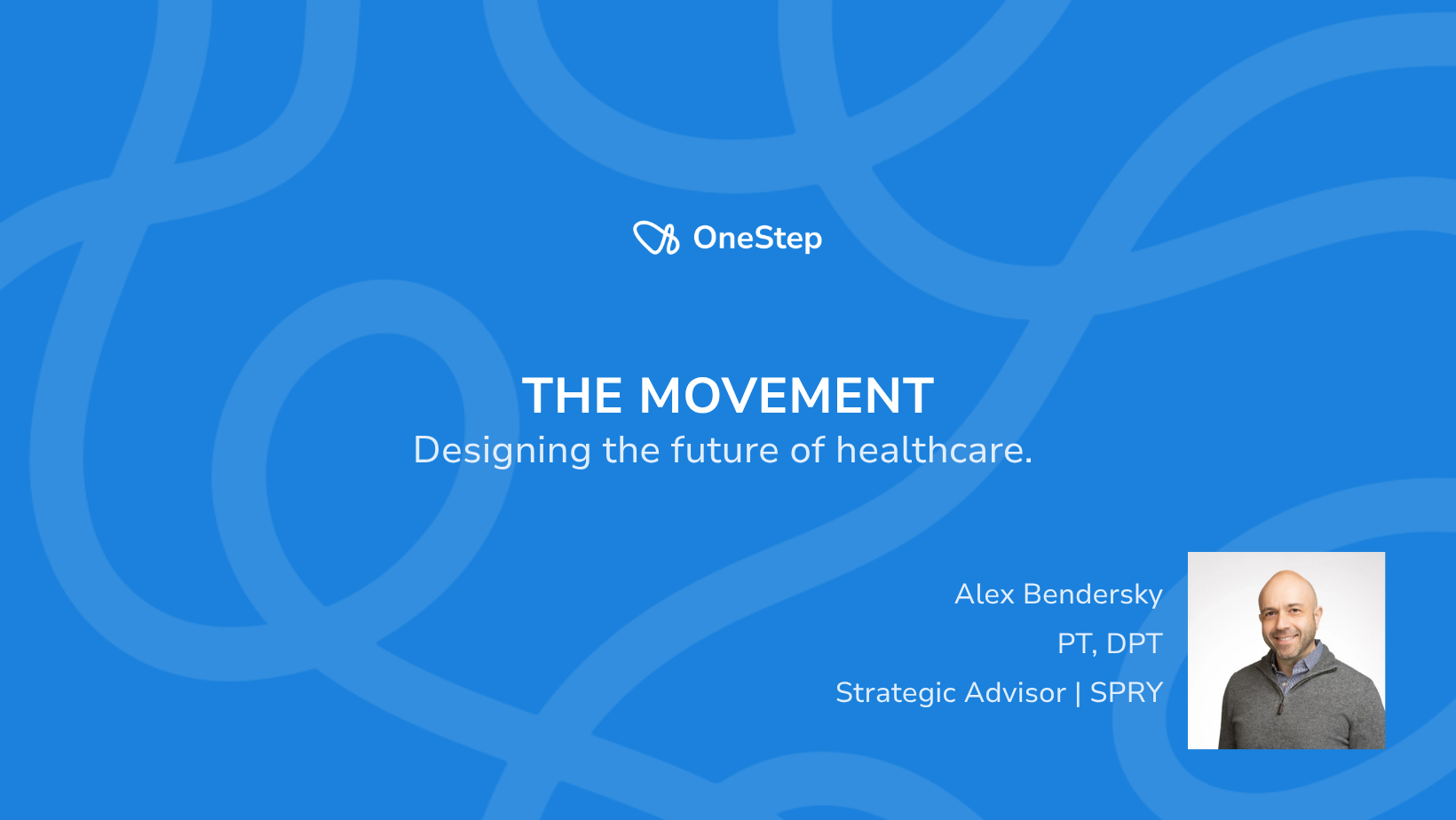
An Interview with Alex Bendersky, Physical Therapist and Health Tech Leader
OneStep recently sat down with Alex Bendersky, physical therapist and health tech innovator for a spotlight conversation, where he opened up about the transformative role of technology in rehabilitation. With a deep clinical background and firsthand experience in digital health, Alex shares his vision for the future of care, the power of data, and how clinicians can thrive amid rapid change.
Alex Bendersky: I’ve always been fascinated by how we can scale the clinical intuition of a therapist. A defining moment for me was seeing immersive technology used to improve chronic pain outcomes. That’s when it clicked – tech doesn’t replace human care. It enhances it. When we combine a clinician’s intuition with data precision, that’s when the real magic happens.
Bendersky: Technology is incredibly good at gathering and analyzing data, but only humans can interpret that data in context. We build trust, we understand lived experiences, and we see the full picture. It’s not just about collecting movement metrics – it’s about what those movements mean to each individual.
Bendersky: Great question. I break it down into three key phases:
Bendersky: The biggest challenge is mindset. Some clinicians are hesitant because it’s new and unfamiliar. That’s why education is key, especially for those training the next generation. If we expose providers early to granular data and tech tools, we’ll see a shift toward a more objective, scalable approach to care.
Bendersky: Historically, movement analysis has been pretty subjective. Technology allows us to bring objectivity to it. With the right tools, we can detect subtle patterns that affect long-term outcomes, whether it’s fall risk or functional performance.
To me, it’s not just about how someone moves, but what their movement reveals about their overall health. Data helps us answer not just the “what,” but also the “why.”
To listen to the complete interview and what Alex has to say about the future of physical therapy, his philosophy and what books are on his nightstand, visit <link to video>.
Bendersky: I love meaningful conversations, especially with folks building in digital health or exploring tech in clinical practice. Feel free to reach out:
📧 Email: sashadpt@gmail.com
🔗 LinkedIn: Connect with me here
Whether you’re a clinician stepping into tech or a founder reimagining rehab, Alex Bendersky’s insights offer a compelling blueprint for the future of care – where human expertise and technology aren’t at odds, but in harmony.
The Movement is a OneStep initiative to spotlight heroes in the healthcare or healthcare tech space that have a passion for what they do, and have made a difference in their field. Know a hero we should spotlight? Drop us a line at hello@onestep.co